A job interview should accomplish two basic things. One, the employer determines if the candidate is an ideal fit for the position, and two, the candidate assesses how he would fit in and whether his goals align with those of the company and position. If you haven’t considered the latter, you may want to before your next interview. Finding a role that fits your career path and objectives should be just as important as convincing the employer that you have what it takes to do the job.
The best way to identify a good match is, of course, to ask the right questions. Asking thoughtful, well-prepared questions is also a great opportunity to further demonstrate your skills, determination, and potential value to the company. After a bit of research, I’ve listed below three of my favorites.
Question 1: Can you please show me some examples of projects that I’d be working on?
I can recall at least two contract positions I landed, both of which I wasn’t certain what I’d be working on Day 1. If I had asked a question like this, I would have had a much clearer idea of what my responsibilities would be and if my skills matched up. I would have shown up to work the first day with much more confidence.
This is also a great question for visual learners who do much better ‘seeing’ work examples as opposed to simply hearing about them. Answers to this question might even open the door for more opportunities for you to expound upon your skills and abilities, and make for a much more interesting interview…on both sides.
Question 2: Who previously held the position?
Does this question seem edgy? Intrusive? It might feel that way, but it’s imperative that you somehow identify the ‘backstory’ of the position. This will help you further identify what you’re getting into and how the job was performed in the past.
Was the last person promoted? If so, you can ask and learn more about what made them successful. Or perhaps they were let go? If so, why? You can learn a great deal (if not more) from the challenges a previous employee may have experienced in the position you would be filling. And don’t miss an opportunity to explain how you would have approached one or more of these challenges differently, should the opportunity arise!
Question 3: What is the single largest problem facing your staff, and would I be in a position to help you solve this problem?
The answer to this question will accomplish several things. First, you’ll learn more about issues the department or company currently faces. All companies have problems that need to be solved and it is beneficial to have an idea of what you’re up against, should you get the position.
Second, it can help you determine if you are the right fit for the job. Can you contribute to the solution? Bonus points if you can communicate this during the interview.
Finally, how the employer responds may offer a bit more insight into the team you would be working with. Do you sense a spirit of teamwork or silos? Are they actively working to solve the problem using the current resources they have or are they waiting for you (resourceful vs. looking for someone else to handle it)? You may wish to prepare some follow-up questions here based on an anticipated response.
The point here is that if you’re not asking questions in your interviews, you’re missing a huge opportunity to showcase your qualities and dig deeper into the position you are vying for. Identify your short and long-term goals, research the company you will be interviewing with, show up armed with a few solid questions, and remember that you are interviewing them as much as they are interviewing you. Oh, and let us know if you get the job!

